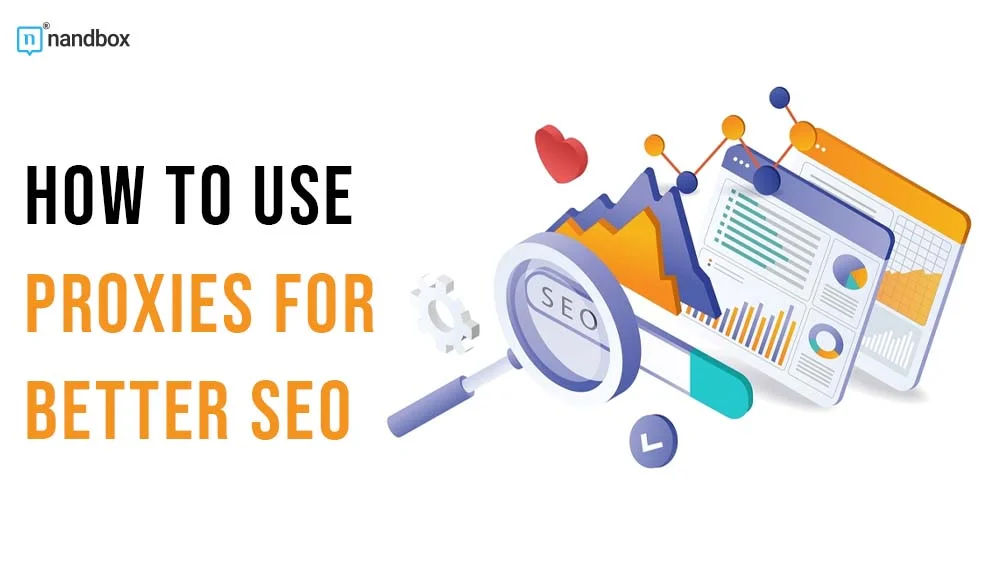Staying ahead of the curve is crucial in the ever-evolving world of Search Engine Optimization (SEO). One effective method to elevate your SEO game is by using proxies. Proxies can enhance your SEO strategies by providing anonymity, bypassing geo-restrictions, and automating tasks without the risk of IP bans. In this article, we’ll delve into how to use proxies for better SEO and why it’s a valuable tool for any SEO specialist.
What Are Proxies?
A proxy server acts as an intermediary between your device and the internet. It masks your IP address, making your online actions appear as though they are coming from a different location.
This can be incredibly beneficial for various SEO tasks, such as web scraping, accessing localized search results, and managing multiple accounts on social media or other platforms.
Benefits of Using Proxies for SEO
Let’s take a look at the benefits of using proxies for search engine optimization!
1. Web Scraping
Web scraping involves extracting data from websites to gather insights into competitors, keywords, backlinks, and more. However, many websites implement measures to prevent automated scraping, including blocking IP addresses that make frequent requests.
By using proxies, you can rotate IP addresses, making your scraping activities appear as if they are coming from different users.Text after: This helps avoid IP bans and ensures continuous data collection. Static ISP proxies offer a reliable solution for this purpose.
2. Access to Localized Search Results
SEO strategies often require understanding how search results appear in different geographical locations. Search engines provide different results based on the user’s location.
Proxies allow you to simulate searches from various regions, giving you a clearer picture of local SERPs (Search Engine Result Pages). This is especially relevant when promoting services across diverse markets, where local trends and keyword performance vary significantly. Agencies offering white label marketing services often rely on proxies to tailor campaigns to regional audiences and provide scalable solutions for their clients.
3. Managing Multiple Accounts
Managing multiple accounts on social media or other platforms is a common practice in SEO. However, these platforms often have policies against various accounts from the same IP address.
Proxies enable you to manage several accounts without risking bans, as each account can appear to be managed from a different IP address.
4. Enhanced Anonymity
SEO sometimes involves sensitive operations like competitive analysis or negative SEO audits. Proxies provide anonymity, ensuring that your actions cannot be traced back to you.
This added layer of privacy is essential for safeguarding your strategies and maintaining a competitive edge.
How to Use Proxies for SEO
1. Choosing the Right Proxy Provider
Picking out a reliable proxy provider is the first and most important step. Look for providers that offer fast, secure, and diverse IP addresses. For instance, Go Proxies is a reputable provider known for its Go Proxies fast checkout feature, which ensures you can quickly and efficiently set up your proxies. For reliable and effective proxy solutions, consider using proxies from providers like Rayobyte. These proxies ensure anonymity, access to localized search results, and seamless management of multiple accounts, essential for robust SEO strategies.
They offer a range of options, including residential, data center, and mobile proxies, catering to different SEO needs.
2. Setting Up Your Proxies
Once you’ve chosen a proxy provider, the setup process usually involves:
- Purchasing a subscription: Choose a plan that fits your requirements. For SEO purposes, residential proxies are often preferred due to their legitimacy and lower likelihood of being banned.
- Configuring proxy settings: Depending on your tools and software, you’ll need to configure the proxy settings. This can typically be done in the settings menu of your web scraping tools, browsers, or SEO software.
- Testing the proxies: Ensure that your proxies are working correctly by performing some test searches or scraping small amounts of data.
3. Integrating Proxies with SEO Tools
Many SEO tools like Moz, SEMrush, Serpple, and Ahrefs allow integration with proxies. This integration is crucial for keyword research, rank tracking, and backlink analysis without interruptions or blocks. Check the documentation of your specific tools for instructions on integrating proxies.
4. Automating Tasks with Proxies
Automation is key to efficient SEO management. Tools like Scrapy, Octoparse, and Selenium can be used to automate web scraping and other repetitive tasks.
By using proxies with these tools, you can ensure your automation processes run smoothly and uninterrupted.
Best Practices for Using Proxies in SEO
- Rotate proxies regularly: Regularly rotating proxies for scraping prevents detection and blocking by websites.
- Monitor proxy performance: Keep an eye on the speed and reliability of your proxies. Slow or unreliable proxies can hamper your SEO efforts.
- Adhere to legal and ethical standards: Ensure that your use of proxies complies with the terms of service of the websites you are accessing and is within legal and ethical boundaries.
Conclusion
Using proxies can significantly enhance your SEO efforts by providing anonymity, access to localized data, and the ability to manage multiple accounts. Integrating proxies into your SEO strategy allows you to gather more accurate data, avoid IP bans, and automate tasks efficiently.
For those looking to optimize their SEO processes, consider trying Go Proxies for a fast and seamless proxy setup. With them, you can get started quickly and take your SEO to the next level.




